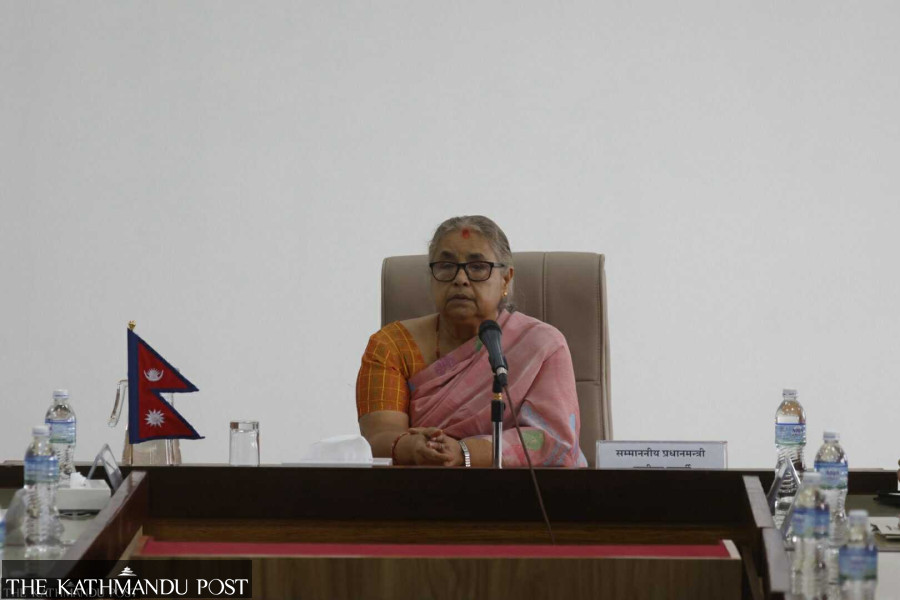Editorial
The election test
It is up to Prime Minister Karki to assure all stakeholders in Nepal’s political process of timely elections.
The new Sushila Karki government should single-mindedly focus on general elections six months down the line. Of course, as the head of government, she will have to deal with multiple issues from Day One. But if timely elections are the government’s focus, many other issues will take care of themselves. For instance, in order to hold elections so soon, people should feel secure enough to cast their ballots, which won’t be possible in an anarchic climate. Maintaining peace in a post-revolution environment is never easy as multiple interest groups jockey for advantage. But if elections were to be held, a level of law and order would have been maintained. This in turn won’t be possible if Karki cannot gain the confidence of the major political actors. The three biggest outfits in the just-dissolved Parliament—Nepali Congress, CPN-UML and CPN (Maoist Centre)—as well as many of the smaller ones have denounced the decision to dissolve Parliament. It is up to Karki to assure them elections will be held on time and she will step down right after that.
The biggest fear of the political parties—and the people at large—is that failure to hold elections could invite a political and constitutional crisis, which could be exploited by undemocratic elements. The new Karki government itself was formed by stepping on the ‘doctrine of necessity’. Now, if it also fails in its singular mandate, there will be an even bigger question over its legitimacy and in the absence of Parliament, it will also be hard to find its democratic alternative. Right now, it won’t be wrong to say that the mandate conferred on the government by the Gen Z revolution will expire in six months. The government will have to work on war-footing to make it happen. At stake is Karki’s legacy, who has chosen to accept the role of head of government after serving out a stellar term as the chief justice.
Other political actors also have no alternative but to help the Karki government fulfil its election mandate. They might still be smarting from the abrupt dismissal of Parliament and on suddenly finding themselves powerless. Yet if they believe in the democratic process, they must accept the revolution’s mandate and prepare to test their popularity among the people. And what an exciting election it will be! Gen Z, which is normally thought of as apathetic to politics, suddenly finds itself at the vanguard of a momentous political change—a change they ushered in themselves. For many members of Gen Z, the September revolution was a time for their political awakening—and it will be amazing to have so many youngsters casting their ballots to cement the kind of change they want. The established political actors can choose to be a part of this indispensable process in the building of ‘New Nepal’. Or they can cling to their egos and entitlements and become irrelevant.




 9.7°C Kathmandu
9.7°C Kathmandu














